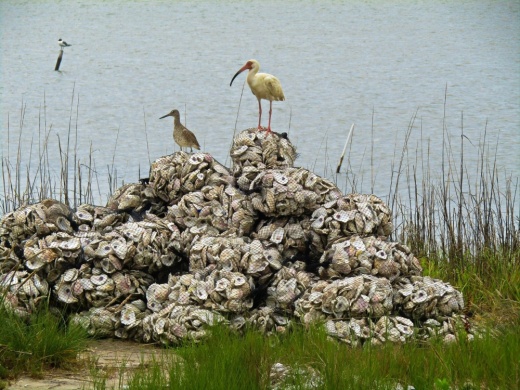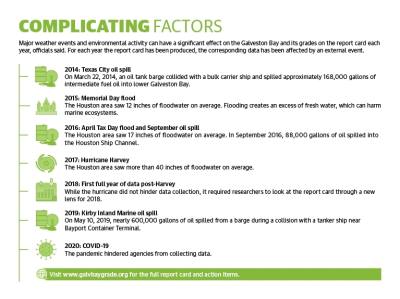The 2021 report card, using data from 2020, was released Sept. 28 by the GBF and the HARC and places the bay at the same overall health rating of C for the seventh consecutive year. Many state agencies were not able to collect data in 2020 due to the pandemic, HARC research scientist Erin Kinney said during a Nov. 18 webinar.
A grade of C, which means “adequate for now,” signifies the bay is faring well considering habitat- and pollution-related challenges, Kinney said. A lack of understanding around which habitats must be maintained to keep waterways healthy contributes to the bay’s challenges, Kinney said.
“Today’s Galveston Bay is resilient, and we hope to keep it that way,” Kinney said.
Fewer samples being taken due to COVID-19 hit Houston-area waterways the hardest in terms of data availability when compiling the report card, she added, so next year’s process is expected to give researchers a fuller picture of the bay’s health .
The GBF is involved in the outreach and education efforts associated with the report card, while the HARC performs data analysis and maintains the report card website . Report card data is collected from various entities, including the Texas Commission on Environmental Quality and the National Oceanic and Atmospheric Administration .
Report card results, challenges
Two grading categories improved from 2020 to 2021: The human health risks, and pollution events and sources categories rose from a C to a B. Kinney said the categories have been graded at a C or a B since the report’s inception, indicating no major changes.
The grades for habitat, water quality, coastal change and wildlife were all the same as in 2020: Coastal change and wildlife earned C’s; habitat earned a D; and water quality earned an A.
Development of freshwater wetland contributes to habitat loss, as does a lack of awareness about what habitat species need to thrive, Kinney said.
There are also no regulations to get funding to study certain issues. Litter and trash are always in the report card, but getting funding for cleanups and prevention work is difficult without a funding path, she said.
A 2020 survey of the lower Galveston Bay watershed found residents wanted to help keep the bay healthy. The report card website has action items for citizens, ranging from volunteering to speaking with lawmakers.
“We need to be doing everything we can to ensure that the ecosystem is as healthy as possible so that when it gets hit from one angle ... the other parts of the ecosystem can help it recover,” she said.






